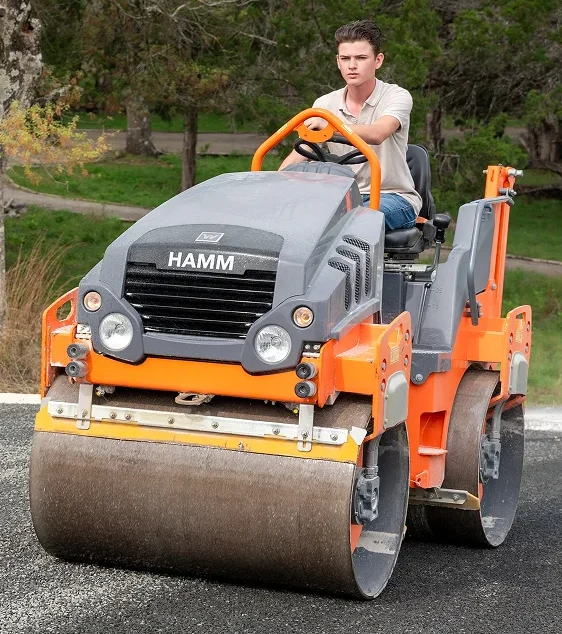If you’re planning a new driveway, road, or parking lot, you’ve likely come across the terms blacktop and asphalt. While they’re often used interchangeably, the key differences between them matter when it comes to long-term performance, paving needs, and budget.
Asphalt vs Blacktop — Which Is Better?
At C. Brooks Paving, we’ve completed countless paving projects across Bulverde and South Texas. From rural farm roads to commercial parking lots, one question keeps coming up: What’s the real difference between blacktop and asphalt?
Let’s break it down so you can choose the best paving material for your project.
What is Asphalt?
Asphalt is a durable paving material made from crushed stone, sand, and a petroleum-based binder called bitumen. It’s engineered to withstand high-traffic areas, extreme weather, and heavy loads.
Key Features of Asphalt:
- High bitumen content for superior strength
- Matte, textured asphalt surface
- Heat-resistant perfect for hot climates like South Texas
- Ideal for asphalt driveway, roads, and commercial paving solutions
Asphalt paving offers long-term value thanks to its resilience and performance.
What is Blacktop?
Blacktop is a type of asphalt but mixed and applied differently. It contains more crushed stone and is mixed at a higher temperature than asphalt.
Benefits of Blacktop:
- Smoother, shinier blacktop surface when freshly installed
- Aesthetic appeal for residential driveways
- Best suited for low-traffic or light-duty areas
- Commonly used in playgrounds, walking trails, and small paving projects
Since blacktop and asphalt are pre-mixed, the heating method and composition of asphalt determine which is better for your specific paving needs.
Blacktop and Asphalt: Side-by-Side Comparison
Let’s look at the key differences across common categories:
1. Composition & Appearance
- Asphalt: More bitumen, giving it a dense, darker, and rougher finish
- Blacktop: Contains more crushed stone, resulting in a shinier and smoother texture
2. Durability & Lifespan
- Asphalt provides high durability, resisting wear and tear from heavy trucks and heat
- Blacktop offers moderate durability, better for low-impact areas
3. Maintenance
- Asphalt repair and cleaning needed every 3–5 years
- Blacktop requires more frequent repair and sealing due to its softer structure
4. Installation Temperature
- Asphalt: Heated to ~250–300°F
- Blacktop: Requires higher temperature (~300–350°F)
5. Cost Differences
- Cost differences between asphalt and blacktop are minimal upfront
- Asphalt tends to deliver better long-term value

When to Choose Asphalt Over Blacktop
Ideal For:
- Commercial parking lots
- Farm roads or long asphalt driveways
- High-traffic areas like highways or school zones
- Areas exposed to extreme temperatures
Why Asphalt Works Well in Texas:
- Resists durability challenges caused by heat
- Handles constant heavy traffic loads
- Offers long-lasting installation results
If you’re planning a large paving project, premium asphalt often outperforms blacktop.
When Blacktop is the Right Choice
While blacktop lacks the strength of hot mix asphalt, it serves well in environments with light paving needs.
Best Uses for Blacktop:
- Blacktop driveway or patio
- Neighborhood walkways and trails
- Basketball or tennis courts
- Recreational areas where smooth finish matters
Blacktop is more suitable when aesthetics and cost savings matter more than industrial strength.
Understanding the Key Difference Between Blacktop and Asphalt
The main difference between blacktop and asphalt lies in their composition and performance:
- Blacktop has more crushed stone and a shinier surface
- Asphalt uses more bitumen and is built for high endurance
- Blacktop generally suits residential settings
- Asphalt is designed for heavy-duty construction and paving
Knowing these asphalt differences helps when choosing between blacktop or asphalt.

Common Questions to Consider Before You Pave
- What traffic level will the surface handle?
(Family cars vs. delivery trucks) - How often are you willing to perform cleaning, sealing, or repair?
(Every 1–3 years for blacktop vs. 3–5 years for asphalt) - Is it a short-term or long-term investment?
- What’s the size of your area?
(Large paving projects often benefit from asphalt installation)
Quick Comparison Table: Asphalt vs Blacktop
| Feature | Asphalt | Blacktop |
| Surface | Coarse, matte | Smooth, glossy |
| Durability | High | Moderate |
| Use Case | Roads, parking lots, farm lanes | Driveways, walkways |
| Maintenance | Every 3–5 years | Every 1–3 years |
| Cost | Slightly higher | Slightly lower |
| Heat Resistance | Excellent | Good |
What We Recommend at C. Brooks Paving
Every project is different. Our team of asphalt contractors listens carefully, checks soil and traffic load, and recommends the best paving material.
From installing porous asphalt on sloped terrain to smooth blacktop driveways for homes, our team handles every repair, cleaning, and installation detail with care.
Real South Texas Project Examples
- Bulverde Farm Driveway: Durable asphalt paving built for tractors and trucks
- Spring Branch Playground: Polished blacktop for safety and appearance
- San Antonio Suburb Retail Lot: Full asphalt installation + scheduled maintenance
Final Thoughts: Choosing the Right Paving Option
Whether you go with asphalt or blacktop, the right choice depends on your property’s purpose.
- Choose asphalt if you need a durable, long-lasting surface for high-traffic areas
- Choose blacktop if you want an attractive, budget-friendly finish for residential use
And remember, C. Brooks Paving is here to guide your decision from start to finish.





